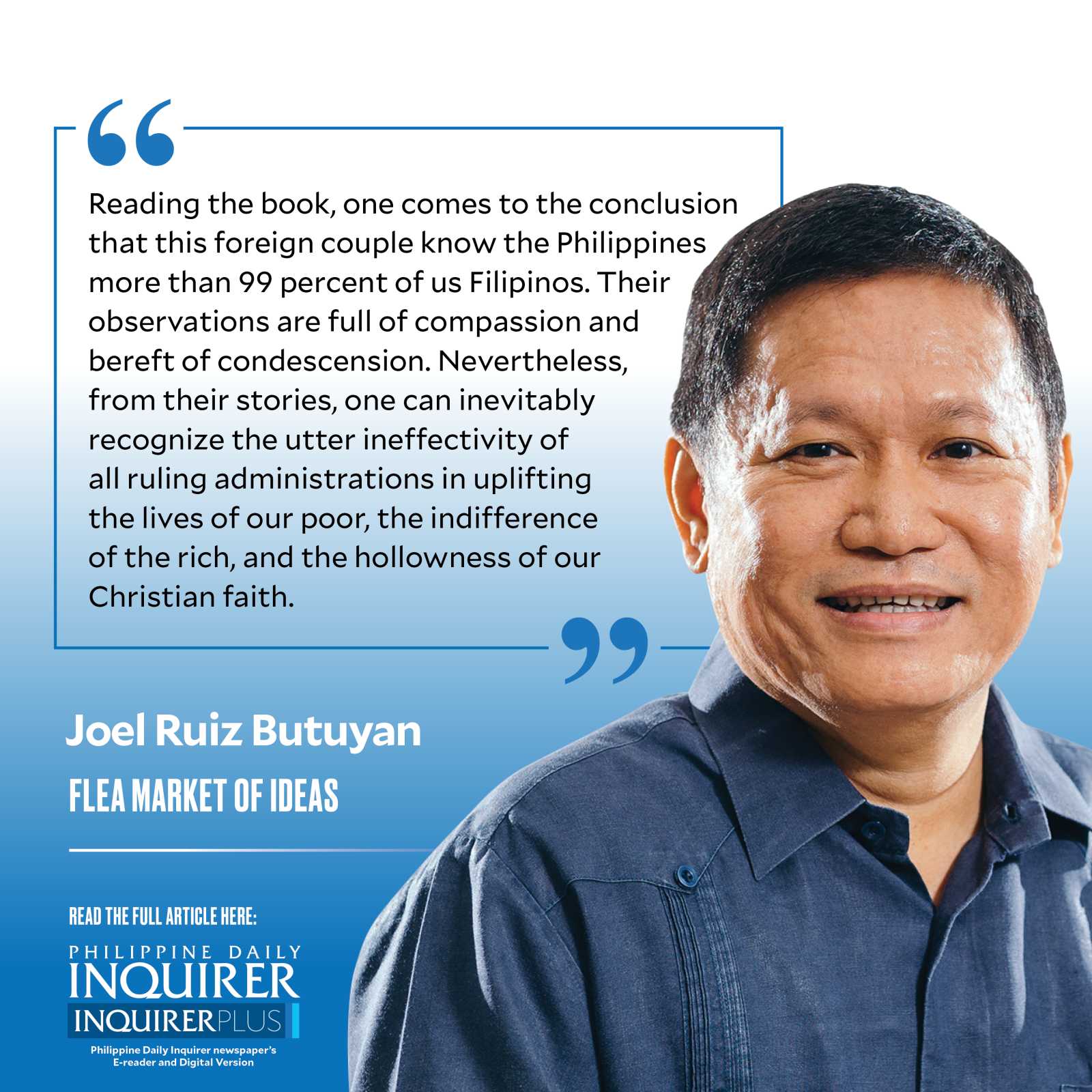Saints in the slums

I first met Christian Schneider (“Chris”) while we were riding atop a jampacked jeepney that was traveling from Caticlan to Kalibo in Aklan.
It was 1989 and the unpaved road was in cruel conditions, causing our transport to have a flat tire. Since there was nothing else to do while waiting, my companion-friend and I struck a conversation with the foreigner beside us.
He told us that he’s a Christian missionary living in a slum area called Bagong Silang in Caloocan City. My friend and I were skeptical and curious so we told him we’ll pay him a visit.
Chris was surprised when we turned up in Bagong Silang a few weeks later. But we were more surprised that he was indeed living in squalid conditions.
We walked through narrow pathways, portions of which were wooden planks perched on top of stinky esteros, to reach the little shanty that was his shelter. Chris talked of how he endured ant and mosquito bites, and how cockroaches and rats scampered around while he slept. The area looked like a refugee camp, with all sorts of materials used to contrive small houses. I cannot forget the stench that pervaded the place while we were there.
Chris went on to live for 13 years in five different slum communities in our country, namely Bagong Silang in Caloocan City, Bagong Barrio in Malabon City, and in three squatter colonies in Quezon City such as those along NIA road, in Kaingin Bukid Frisco, Payatas Tambakan, and Philcoa.
Four years he lived alone, and nine years with his family. Chris married a fellow Swiss, Christine Tanner who shares his live-your-faith creed, and the couple bore two children. The “white” family contracted kuto (lice), amoeba diarrhea, dengue, and all sorts of ailments that plagued the slums where they lived. The two children spoke fluent Tagalog, and the sight of two blonde kids playing with poor teens in a shanty town became a surreal spectacle.
Chris first joined “Servants” when he first came to the Philippines. It’s a New Zealand group that sends Christian missionaries to live and minister in very depressed communities. In his first year, Chris was supposed to only devote his time learning the local language while living in an impoverished community. But all-too-soon, since he was a nurse in his home country, he found himself establishing a first-aid clinic for children with dire medical cases like festering wounds, malnourishment, vomiting with worms, and a cacophony of other ailments. The small shanty that he occupied soon became a regular meeting place for poor kids who received reading and writing lessons from Chris and his Filipino assistant, as well as spiritual lessons.
In 1996, Chris organized his own group, Onesimo, named after the biblical character of a runaway slave who converted to Christianity while in prison. Today, the Onesimo network has 45 centers for street kids, sexually abused girls, and youth in need of rehabilitation in Metro Manila, Rizal, and Cebu. It has centers where kids reside with supervising “parents;” where kids can drop in and out for meals, toilet and bath, learning, and spiritual formation, and; that offer livelihood training and school financial assistance. It maintains a farm in Sta. Maria, Laguna, for poor kids to experience farm life, and beachfront facilities in Puerto Galera where slum kids spend summer retreats.
Chris and Christine have written a riveting book entitled “Rubble and Redemption” chronicling the people, experiences, and the triumph of faith, that they’ve witnessed while living among our poor. Reading the book, one comes to the conclusion that this foreign couple know the Philippines more than 99 percent of us Filipinos. Their observations are full of compassion and bereft of condescension. Nevertheless, from their stories, one can inevitably recognize the utter ineffectivity of all ruling administrations in uplifting the lives of our poor, the indifference of the rich, and the hollowness of our Christian faith.
Chris and his family have relocated back in Switzerland because of his heart ailment that requires lifelong treatment. Onesimo is now ran by Filipinos who share the same faith-centered passion for the poor. The Schneiders continue to support Onesimo with donation-drives in Europe because it requires an annual budget of P70 million, almost all of which come from Swiss and German donors. But Chris and Christine still spend a few months every year in the Philippines to observe the programs.
They bring students and professionals from Europe who do weeks of immersion in the slum areas served by Onesimo.
We Filipinos venerate European figures as patron saints, and celebrate their lives with town fiestas, even if they never set foot in our islands. The missionaries of Onesimo and Servants, some of whom may even be worthier versions of Chris and Christine, are doing saintly work in our shanty towns, living and demonstrating their faith in the tradition that Christ set as example.
Ask how he looks back at their days in the slums, Christian Schneider says that his family members unanimously agree that “those were the best years of our lives.”
—————-
Comments to fleamarketofideas@gmail.com
















